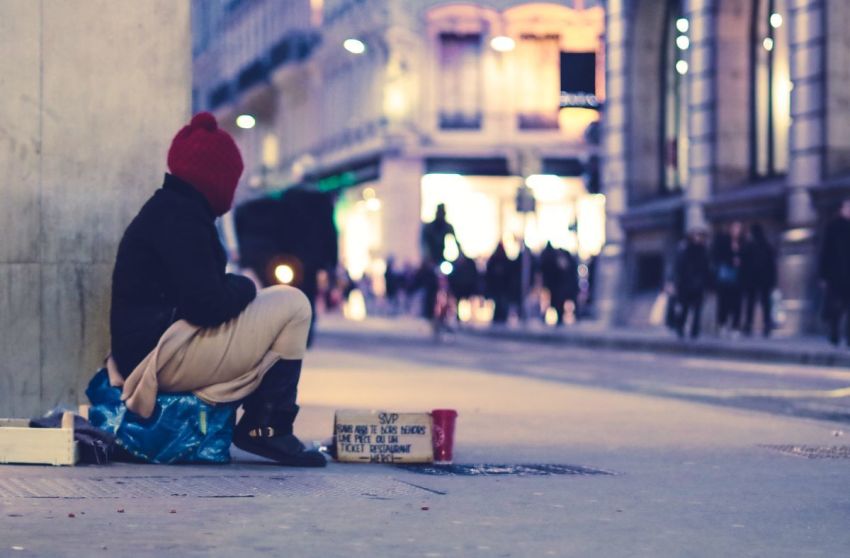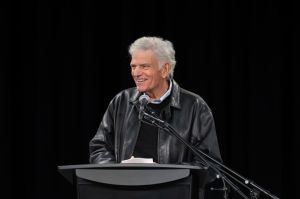Judge temporarily bans San Francisco from clearing homeless encampments amid lawsuit

A federal judge temporarily banned San Francisco from clearing most homeless encampments amid a lawsuit against the city filed by advocacy groups seeking to stop police sweeps of homeless encampments.
U.S. Magistrate Judge Donna Ryu issued a preliminary injunction Friday prohibiting the city from punishing homeless people for sleeping on public property and confiscating their belongings, including tents, medication and identification.
Ryu noted in her decision that the city failed to offer shelter to homeless people before clearing encampments and seizing their property. The judge also found the city's argument for taking enforcement actions "wholly unconvincing," claiming that the defendants failed to dispute that they cleared people without first providing shelter.
The judge wrote that the defendants rely on declarations of San Francisco employees who "generally walk through how the city typically conducts encampment closures, without discussing any specific closures or providing supporting data or analysis of the same."
The injunction will remain effective "as long as there are more homeless individuals in San Francisco than there are shelter beds available."
The lawsuit filed in September against the city by various advocates, including the American Civil Liberties Union (ACLU) and the Coalition on Homelessness, alleges that San Francisco violated the rights of "unhoused people" by "punishing residents who have nowhere to go."
In a statement published Saturday by The San Francisco Chronicle, Mayor London Breed argued that the city spends a significant amount of money to shelter homeless people. She also claimed that a "large majority" of people city workers clear from encampments "are refusing services or are already housed."
The mayor also asserted that some are using the encampments for "drug dealing, human trafficking and other illegal activities" and that the judge's ruling prevents her from addressing the homeless crisis.
"Mayors cannot run cities this way," she said. "We already have too few tools to deal with the mental illness we see on our streets. Now we are being told not to use another tool that helps bring people indoors and keeps our neighborhoods safe and clean for our residents."
Zal Shroff, senior attorney for the Lawyers' Committee for Civil Rights, which is involved in the lawsuit against the city, told The Chronicle that Breed is incorrect about the details of the case.
"San Francisco says it has enough shelter for everyone, but in fact they never have enough shelter — on 80% to 90% of the days they don't," he said. "If there is a genuine health and safety matter going on, such as sidewalk access, then a camp should be able to be moved."
"But what's actually happening is people are being punished for the mere act of being homeless," he stated. "Not for any safety violation, or any actual criminal violation. What in fact San Francisco is doing is trying to remove the visible signs of homelessness, and all they're doing is moving the problem around."
The City and County of San Francisco reported that 7,754 people were experiencing homelessness in the city, and 3,357 were staying in a shelter, according to the 2022 Point-in-Time (PIT) count. The latest count was conducted in February 2022.
The PIT count also noted that there was a 3.5% decrease in the number of people facing homelessness from 2019 to 2022, with a larger proportion of individuals without homes residing in a shelter.
In August, California Gov. Gavin Newsom announced the state had cleared over 1,250 homeless encampments since September 2021.
"Leaving people on the streets and our highways is dangerous and inhumane. It's unacceptable," Newsom said in a statement. "California is investing billions of dollars to house thousands of people and clean up our communities and streets. Our efforts are a model for the nation, and more importantly, we're getting people off the streets and into the housing and services they deserve."
Across the country, other municipalities are facing pressure to stop clearing homeless encampments. In Minneapolis, Minnesota, residents and activists have spoken out against the city's plan to close an encampment outside a shopping center in northeast Minneapolis.
The city gave the 10 individuals a week's notice to vacate the city-owned property by Wednesday because shelters have more beds available, according to CBS Minnesota.
"Most of us here actually have plans to move on from here, but we gotta have time to finish working those plans out. Kicking us out to nothing again is going to make us have to start over again," one resident named Charles told the outlet.
In the nation's capital, local and federal officials have committed to removing homeless encampments that have popped up throughout the city. Fox News reports that the National Park Service cleared encampments at McPherson Square and Scott Circle in the last month.
As The Christian Post reported, Rasmussen released the results of a national survey of 1,000 adults that found 92% of Americans believe homelessness is a serious problem in the country. Another 65% of participants said the issue is "very serious," and only 6% said it was not a serious problem.
The survey also noted that more Americans seem aware of the problem since February 2021, when 55% of those surveyed said the problem of homelessness was "very serious." In addition, 68% of Americans think the issue has worsened within the past two years, and only 8% say it has improved.
Regarding how to resolve homelessness, 28% of Americans believe it's the federal government's responsibility, while 40% think it's the state's duty. Sixteen percent say it's a local responsibility, and another 16% said they're uncertain.
Samantha Kamman is a reporter for The Christian Post. She can be reached at: samantha.kamman@christianpost.com. Follower her on Twitter: @Samantha_Kamman



























